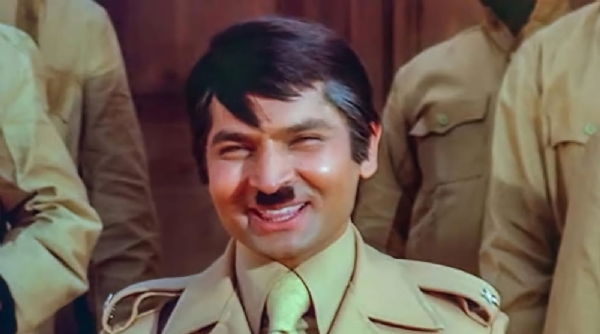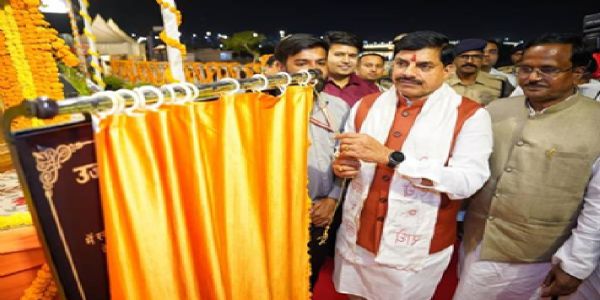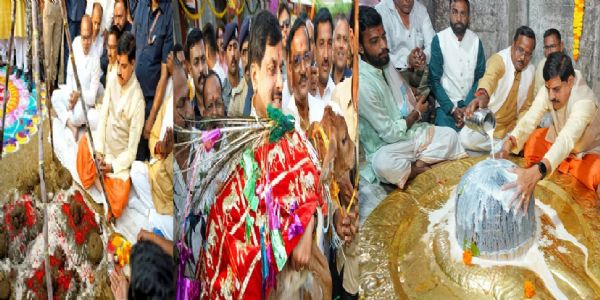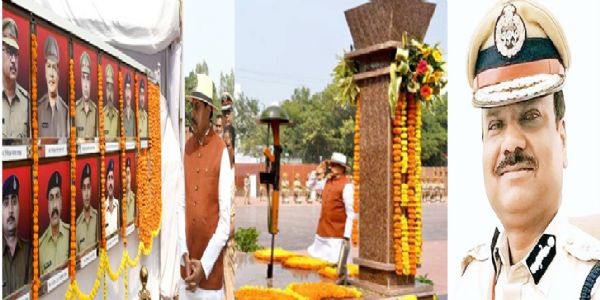
Prayagraj/Mumbai,
21 Oct (HS): “For more than five decades, one familiar face in Hindi cinema has
been a constant source of joy — Govardhan Asrani, lovingly known as Asrani Ji.
On 20 October 2025, at the age of 84, he breathed his last in Mumbai, marking
the end of an era,” says lyricist and script writer in Bollywood Shaami M.
Irfan from Mumbai. He was speaking to journalisits during his visit to
Prayagraj on Tuesday.
“His immortal line as the “Jailer from the British era” in
Sholay made him a household name. That brief appearance became one of the most
iconic comic moments in Indian cinema. For Asrani, humour was never just about
laughter — it was a reflection of life itself. From Chupke Chupke and Chhoti Si
Baat to Balika Badhu, Pati Patni Aur Woh and Rafu Chakkar, he created
characters that lived on beyond the screen. He won two Filmfare Awards for Best
Comedian — for Aaj Ki Taaza Khabar (1974) and Balika Badhu (1977),” he added.
“Born on 1 January 1941 in Sukkur (then in British India, now in
Pakistan) and raised in Jaipur, Asrani showed an early fascination with acting.
After graduating from Rajasthan College, he trained at the Film and Television
Institute of India (FTII) in Pune. His debut came in 1967 with Hare Kaanch Ki
Choodiyan, followed by Satyakam and Mere Apne, which established him as a
promising character actor. Soon, directors like Hrishikesh Mukherjee, Gulzar,
and Basu Chatterjee made him a regular part of their creative worlds.
His friendship and onscreen chemistry with superstar Rajesh
Khanna became legendary. The two worked together in 25 films, including
Bawarchi, Namak Haraam, and Palkon Ki Chhaon Mein. In Gujarati cinema too,
Asrani achieved great success with films like Amdavad No Rickshawalo. As a
filmmaker, he wrote and directed Chala Murari Hero Banne (1977), a
semi-autobiographical comedy that reflected both his humour and humility,” he
remarked.
“Even in changing times, Asrani remained relevant. From the
1990s onwards, he adapted seamlessly to new styles of comedy, appearing in
blockbusters such as Hera Pheri, Dhamaal, Bhool Bhulaiyaa, De Dana Dan, and Bol
Bachchan. In 2016, he appeared in the web series Permanent Roommates, winning
over a whole new generation of viewers. Off-screen, Asrani was known for his
humility and warmth. He shared his life and many film credits with his wife,
actress Manju Asrani. Simplicity defined both his art and his character. Before
two week in his final public appearance in Ujjain, he told the audience,
“Laughter is the exercise of the soul.” Perhaps that was the essence of his art
— to heal the world through a smile. Asrani’s
passing is not merely the loss of a comedian, but the fading of a time when
humour carried grace and compassion. He showed that laughter is timeless, a
universal language of humanity. And somewhere, in the echoes of his famous line
— “Hum Angrezon ke zamaane ke jailer hain” — it feels as though he still stands
guard over our smiles. Govardhan Asrani (1941–2025): An actor, director, and
eternal optimist — whose laughter will forever echo in the heart of Indian
cinema.
Hindusthan Samachar / Abhishek Awasthi








